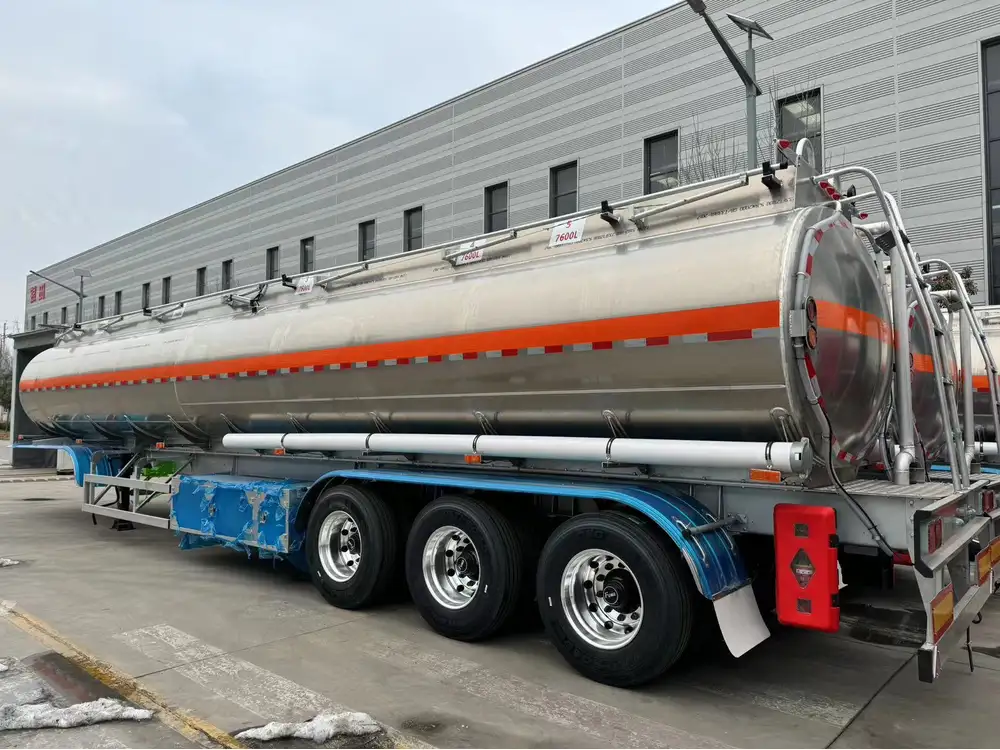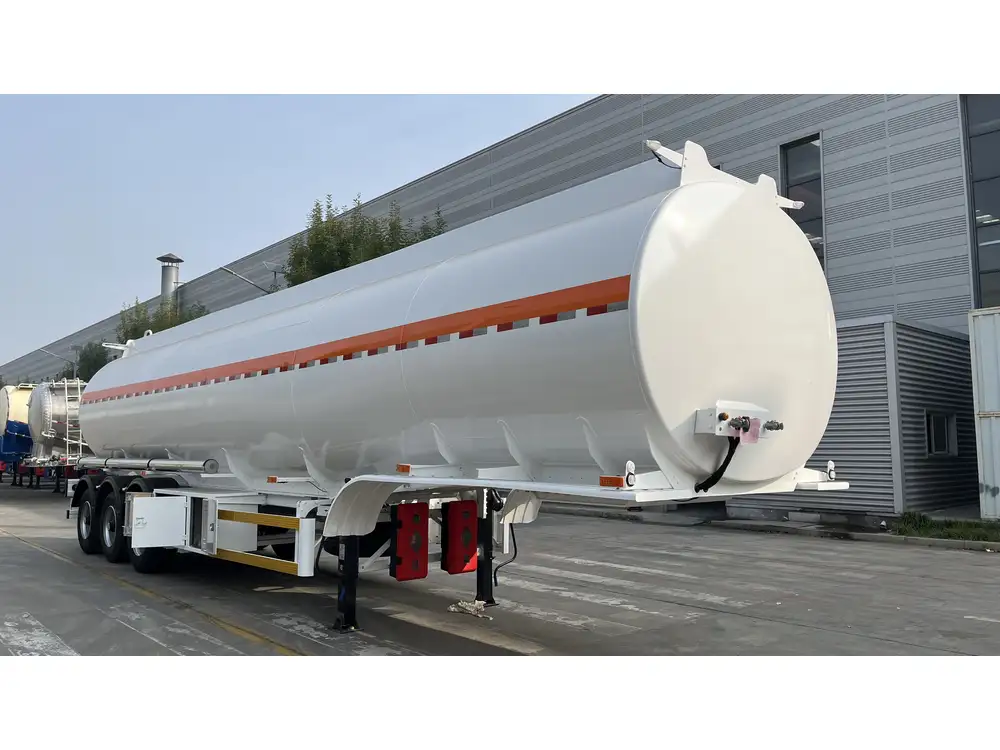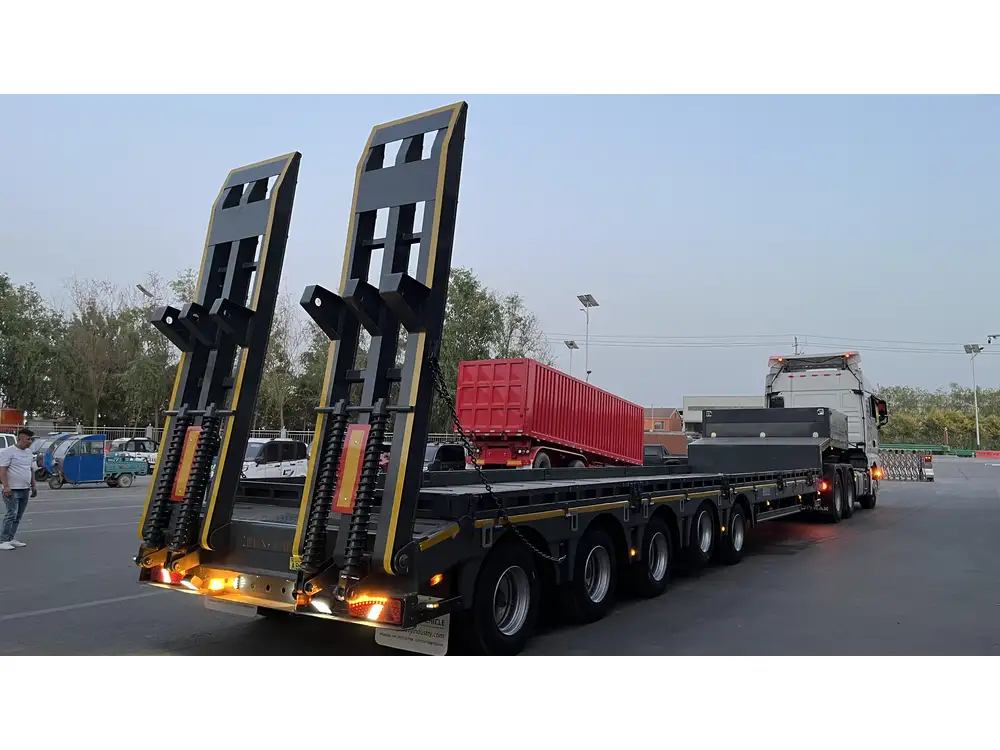When choosing a van trailer for a semi-truck, one pivotal consideration is its weight. Knowing how much a van trailer for a semi weighs significantly influences transportation capabilities, regulatory compliance, and overall operational efficiency. This article delves deep into various factors affecting van trailer weight, comparisons with other trailer types, and critical considerations for manufacturers and operators.
Key Factors Influencing Van Trailer Weight
1. Trailer Construction Materials
The materials used in trailer construction heavily impact the weight. Common materials include:
- Aluminum: Lightweight and resistant to corrosion. Aluminum trailers can weigh significantly less than steel counterparts.
- Steel: While robust, steel trailers tend to be heavier. The choice between materials affects not just weight but also durability and maintenance.
- Composite Materials: Emerging technologies are introducing advanced composite materials that provide strength with reduced weight.
| Material | Advantages | Disadvantages | Weight Range (lbs) |
|---|---|---|---|
| Aluminum | Lightweight, corrosion-resistant | Higher initial cost | 8,000 – 12,000 |
| Steel | Cost-effective, high strength | Heavier and prone to rust | 10,000 – 14,000 |
| Composite | Lightweight, durable | Limited availability and cost | 7,000 – 11,000 |

2. Sizes and Dimensions
Van trailers come in various sizes, typically classified by their length and height. Common dimensions include:
- Length: Standard lengths are usually 28, 40, 48, and 53 feet.
- Height: Height ranges from 8 to 14 feet, with industry standards favoring the 13.6-foot height in North America.
The dimensional choices lead to variations in weight. Larger trailers generally weigh more due to increased material usage.
3. Type of Van Trailer
Focusing on different types of van trailers reveals further variations in weight:
- Standard Van Trailers: Generally weigh between 10,000 and 14,000 lbs.
- Reefer Trailers: Insulated and equipped with refrigeration units, these trailers weigh more, often between 12,000 and 16,000 lbs due to additional components.
- High-Cube Trailers: Taller designs increase capacity but add weight, typically ranging from 11,000 to 15,000 lbs.
4. Load Capacity
The payload capacity of a trailer is directly linked to its weight. A standard van trailer’s maximum payload can range from 45,000 to 50,000 lbs, depending on the configuration and combination with the semi-truck. Thus, the combined weight of the truck, trailer, and load must adhere to regulatory limits of 80,000 lbs for the U.S. interstate system.
| Trailer Type | Typical Weight (lbs) | Maximum Payload (lbs) |
|---|---|---|
| Standard Van | 10,000 – 14,000 | 45,000 – 50,000 |
| Reefer | 12,000 – 16,000 | 45,000 – 50,000 |
| High-Cube | 11,000 – 15,000 | 45,000 – 50,000 |

How Weight Affects Operational Efficiency
1. Fuel Efficiency
Heavier trailers typically lead to increased fuel consumption. As the weight of the trailer rises, trucks require more power to transport goods, thereby consuming more fuel. By understanding the weight of their van trailers, trucking companies can optimize load configurations to enhance fuel efficiency.
2. Legal Compliance
In the United States, the Federal Highway Administration regulates the maximum permissible weights for commercial vehicles. This includes:
- Gross Vehicle Weight (GVW): The total weight of the truck and trailer combination, which cannot exceed 80,000 lbs without permits.
- Axle Weight Limits: Specific limits apply to individual axles, affecting how weight is distributed.
Failure to comply can result in hefty fines, making awareness of trailer weights critical for operators.

3. Structural Integrity and Safety
Choosing a van trailer that’s appropriated weight is paramount for structural integrity. Overloading can lead to catastrophic structural failure, risking cargo loss, road accidents, and costly repairs. Regular inspections must ensure that trailers adhere to their weight ratings.
Weight Comparison: Van Trailers vs. Other Trailers
Understanding how van trailers compare with other types of trailers may influence your choice. Consider the following comparative analysis.
| Trailer Type | Typical Weight (lbs) | Primary Use |
|---|---|---|
| Van Trailer | 10,000 – 14,000 | General freight |
| Flatbed Trailer | 6,000 – 10,000 | Construction, heavy equipment |
| Lowboy Trailer | 15,000 – 25,000 | Heavy-duty machinery |
| Tanker Trailer | 11,000 – 15,000 (empty) | Liquid transport |
| Reefer Trailer | 12,000 – 16,000 | Perishable goods |
1. Van Trailers vs. Flatbed Trailers
While a van trailer might weigh more than a flatbed, the enclosed nature protects cargo from environmental elements. Flatbed trailers, however, offer flexibility in loading and unloading, albeit at a weight disadvantage from added bracing and securing equipment.

2. Van Trailers vs. Lowboy Trailers
Lowboy trailers are designed to transport heavy equipment and machinery, often leading to a higher empty weight. However, their unique design permits transport above legal height limits, making them invaluable for specific industries.
Critical Considerations for Manufacturers
As a manufacturer of semi-trailers, understanding the implications of van trailer weight on your products is essential.
1. Balance Performance and Durability
Constantly innovating with lightweight materials without compromising durability is crucial. Advanced construction techniques can allow for a more robust frame with reduced weight, enhancing overall performance.

2. Customization Options
Providing customization options for weight and design can attract operators looking to optimize their fleet. This includes offering trailers in various configurations that balance payload capacity and trailer weight.
The Future of Van Trailer Weights
The trend toward increasing fuel efficiency and regulatory changes is leading manufacturers to explore innovative materials and designs. Possible advancements may include:
- Aerodynamic Enhancements: Reduced wind resistance can improve fuel efficiency, allowing for heavier loads without increasing overall weight.
- Smart Technologies: Integrating load sensors that inform operators of current weights, thereby preventing overload.
- Sustainability: Using recycled materials may become a prevalent trend, balancing weight reduction with environmental responsibility.
Conclusion
Understanding the weight of a van trailer for a semi-truck doesn’t just inform purchasing decisions; it impacts operational efficiency, legal compliance, and safety. By considering the materials, dimensions, and types of trailers, as well as the implications of weight on various factors, both operators and manufacturers can optimize their operations effectively.

Call to Action
For more insights on optimizing your semi-trailers or to explore our latest lightweight van trailer models, connect with us today. Knowledge is the backbone of efficiency—let us help you ensure your fleet maximizes both potential and performance.



